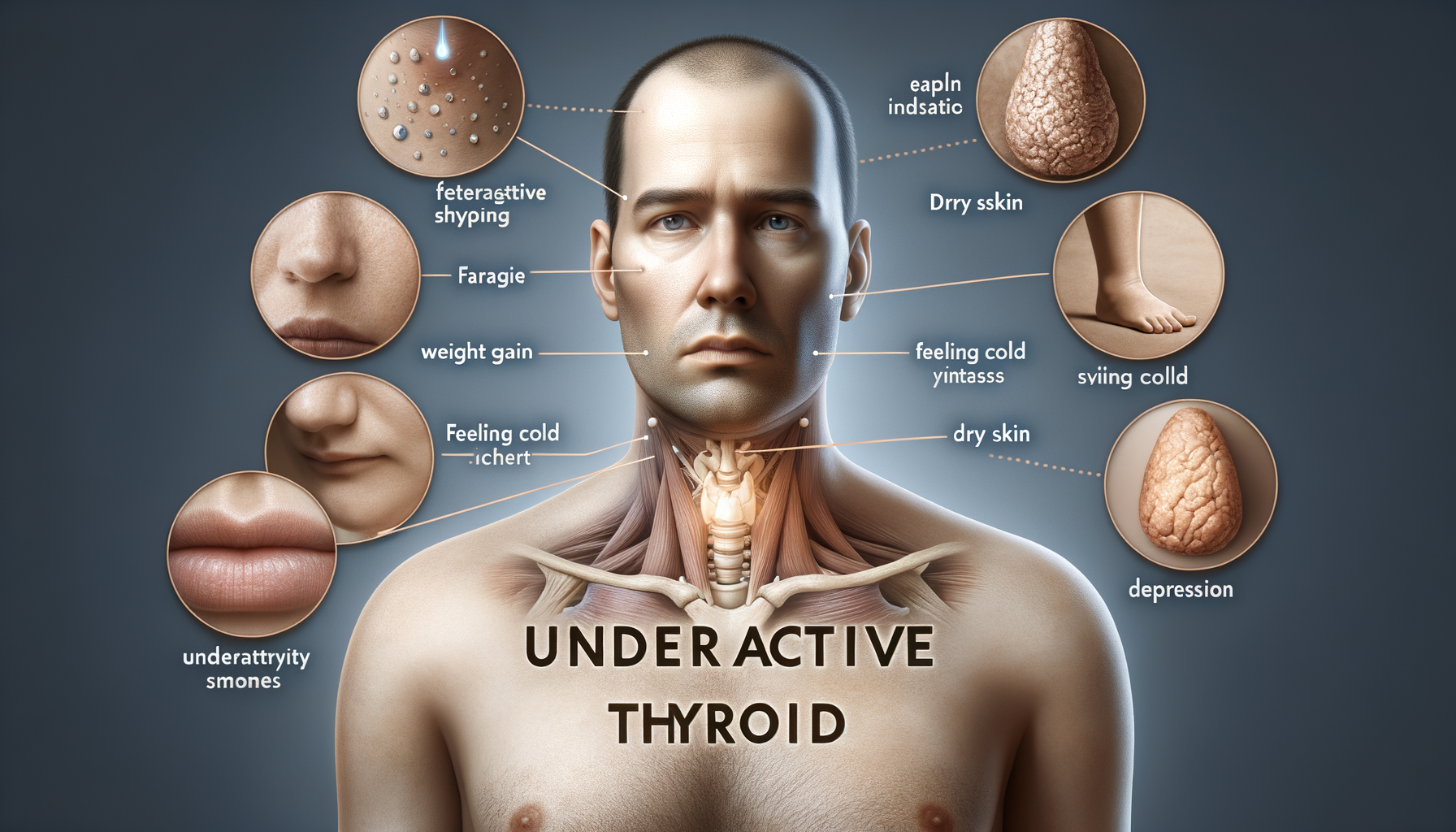
Recognizing the Early Indicators of an Underactive Thyroid
Understanding the Thyroid’s Role in the Body
The thyroid gland, a small butterfly-shaped organ located at the base of the neck, plays a crucial role in regulating the body’s metabolism. It produces hormones that influence various bodily functions, including heart rate, body temperature, and energy levels. When the thyroid is underactive, a condition known as hypothyroidism, it fails to produce sufficient hormones, leading to a slowdown in these processes. This can result in a range of symptoms that affect an individual’s overall well-being.
Hypothyroidism is more common than many realize, affecting millions globally. Its prevalence is particularly high among women and older adults. Understanding the thyroid’s function helps in recognizing the importance of these hormones in maintaining energy balance and metabolic rate. Without adequate thyroid hormones, the body struggles to convert nutrients into energy, leading to fatigue and other related symptoms.
While the thyroid’s influence is extensive, its dysfunction may go unnoticed initially due to the gradual onset of symptoms. Recognizing these early signs can be pivotal in seeking timely medical advice and managing the condition effectively. Awareness of how the thyroid impacts overall health can empower individuals to take proactive steps in monitoring their symptoms and seeking appropriate care.
Common Symptoms of an Underactive Thyroid
Hypothyroidism manifests through a variety of symptoms, which can vary significantly from person to person. Some of the most common indicators include persistent fatigue, unexplained weight gain, and feelings of depression. These symptoms can be subtle at first, often mistaken for stress or aging, but they tend to become more pronounced over time.
In addition to these, individuals may experience:
- Cold intolerance: Feeling unusually cold even in warm environments.
- Dry skin and hair: Skin may become rough and hair brittle or thinning.
- Muscle weakness: Particularly in the upper arms and thighs.
- Constipation: A slowdown in digestive processes.
These symptoms arise due to the body’s slowed metabolic rate, as the thyroid hormones are crucial in regulating energy use. It’s important to note that not everyone will experience all these symptoms, and their severity can vary. Recognizing these signs early can lead to more effective management of the condition, preventing further complications.
Impact of Hypothyroidism on Daily Life
The effects of an underactive thyroid extend beyond physical symptoms, impacting emotional and mental well-being. Many individuals report feelings of lethargy and a lack of motivation, which can affect personal and professional life. The fatigue associated with hypothyroidism is often described as overwhelming, making even simple tasks seem daunting.
Furthermore, the condition can influence mood, leading to irritability or depression. This emotional toll can strain relationships and reduce the quality of life. The cognitive effects, such as difficulty concentrating or memory lapses, can also be frustrating, affecting performance at work or school.
Managing these daily challenges requires a comprehensive approach that includes medical treatment, lifestyle adjustments, and support from healthcare providers. Understanding the wide-ranging impact of hypothyroidism can help individuals and their families develop strategies to cope with these changes and maintain a fulfilling life.
Diagnosis and Treatment Options
Diagnosing hypothyroidism typically involves a combination of medical history review, physical examination, and blood tests to measure levels of thyroid hormones and Thyroid Stimulating Hormone (TSH). A high TSH level alongside low thyroid hormone levels usually confirms an underactive thyroid.
Treatment primarily involves hormone replacement therapy, which aims to restore normal hormone levels, alleviating symptoms and preventing complications. The most common form of this treatment is a daily medication that supplements the deficient hormone.
Regular monitoring and dosage adjustments are crucial, as individual needs can change over time. Patients are encouraged to maintain open communication with their healthcare providers to ensure effective management of their condition. Alongside medication, lifestyle modifications such as a balanced diet and regular exercise can enhance treatment outcomes and improve overall health.
Living Well with an Underactive Thyroid
While hypothyroidism is a chronic condition, with appropriate management, individuals can lead active and healthy lives. Adhering to prescribed treatment plans and attending regular medical check-ups are key components in managing the condition effectively.
Incorporating healthy lifestyle choices can also make a significant difference. This includes:
- Maintaining a balanced diet rich in nutrients that support thyroid health.
- Engaging in regular physical activity to boost energy levels and mood.
- Ensuring adequate sleep to help manage fatigue.
- Monitoring symptoms and communicating any changes to healthcare providers.
Support from family, friends, and support groups can provide emotional comfort and practical advice. By staying informed and proactive, individuals with an underactive thyroid can effectively manage their symptoms and enjoy a high quality of life.


